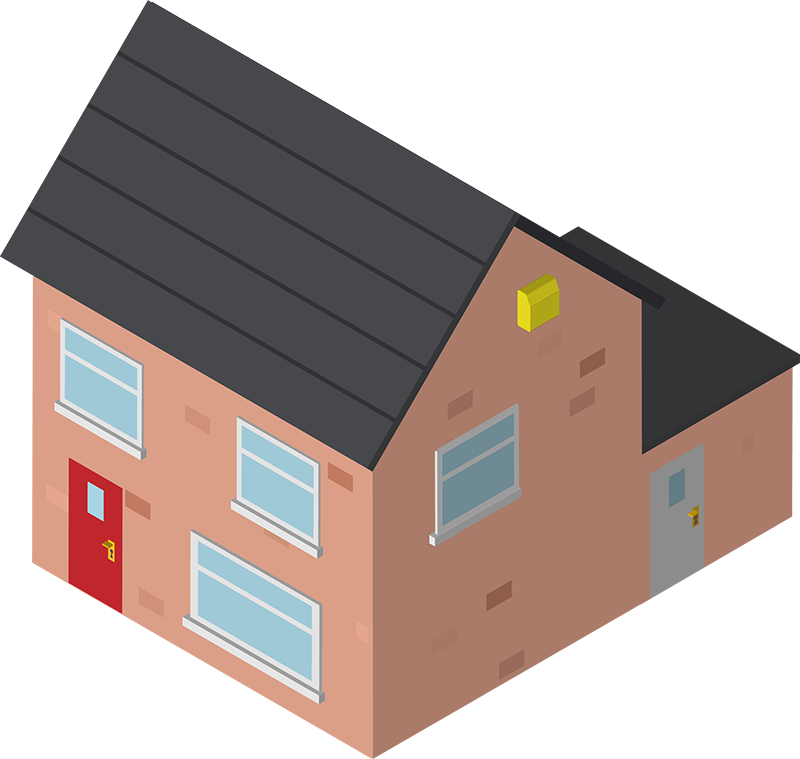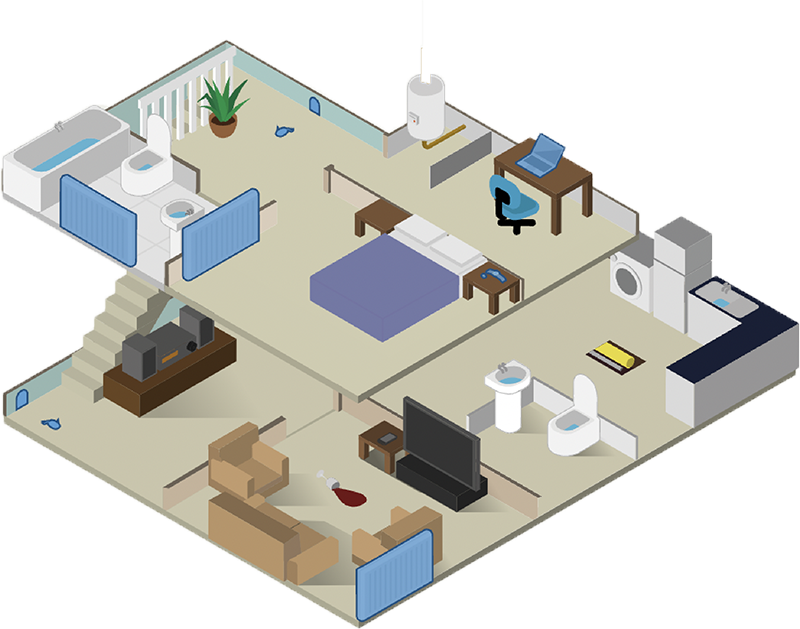Already a customer?
Enjoy a MultiCover discount when you add a car, home or van to your policy.
Home insurance (or house insurance cover) financially protects your home. It can help you and your family if you experience events like theft, fire and floods.
Home insurance has two parts:
Buildings insurance covers the bricks and mortar, contents insurance covers your belongings. You can combine both.
Home insurance typically covers damage caused by:
Protection against severe weather as long as your home is well-maintained
Fences, gates and hedges are not covered.
Find out more about what to do during a storm and what to check afterwards on our storm weather hub.
We’ll help with burst pipes and other plumbing damage
Safeguarding you from theft and damage caused by criminal activity
We’ll support you if fire or smoke damages your home
Claim for the damage falling trees and branches caused to your home
We cover your home against collisions involving vehicles, an aircraft and animals
Here are some common things home insurance doesn't cover:
However, always refer to your policy documents and check on MyAccount to see what is and isn't covered, plus your excess limits before contacting us.
For more information on what's covered read our policy book.
If you're an existing customer, please check MyAccount or your policy book to see your cover limits.
| Admiral | Admiral Gold |
Admiral Platinum |
|
|---|---|---|---|
| Unlimited buildings cover | |||
| 24-hour helpline | |||
| Bicycle cover |
£350 |
£350 |
£350 |
| Contents cover |
£75K |
£100K |
£150K |
| Alternative accommodation (Contents) |
£10K |
£15K |
£25K |
| Alternative accommodation (Buildings) |
£30K |
£75K |
£100K |
| Trace and access |
£2.5K |
£5K |
£10K |
| Personal Possessions cover | Optional | Optional |
£2K |
| Accidental Damage (Contents and Buildings) | Optional | Optional | |
| Home Emergency cover | Optional | ||
| Home Emergency Extra cover | Optional | Optional | |
| Family Legal Protection | Optional | Optional |

Combined home insurance, often called home insurance, includes both buildings and contents cover on one policy. It's usually cheaper than buying buildings and contents separately.

Buildings insurance covers the repair costs for damage to a home's structure and fittings. It also protects garages, outbuildings and anything else that's permanently fixed. It's designed to cover against damage caused by natural and manmade disasters. It's good for freeholders and is usually the bare minimum cover we recommend.

Contents insurance protects the belongings inside your home from theft, vandalism, fire and water damage. It’s usually the right option if you live in a flat or are a leaseholder.
Home insurance isn't a legal requirement, but it's recommended if you're responsible for a property's structure or its contents. Many mortgage providers require you to have home insurance when buying a property.
As a homeowner you're responsible for damage to your property (if you're a freeholder) and its contents if you don't have insurance.
Tenants Insurance, sometimes called renters insurance, protects your contents if you live in a shared home or flat. Your landlord usually covers your buildings insurance.
Landlord Insurance covers everything that buildings does, but it also covers matters like loss of rent if your property becomes uninhabitable due to damage or an accident.
Host Insurance is for homeowners who rent out their home on a short-term basis on sites like Airbnb.
Check the loss or damage is covered to avoid a rejection, plus any payable excess
We need your policy number, incident date and the cause of loss or damage
Visit our make a claim page for our contact details or log into MyAccount
We may ask for original receipts, invoices or valuations to support your claim. If you’re claiming for theft or vandalism, contact the police first as we’ll need your Crime Reference Number to start the claim.
We'll need to know your address, what cover you want (buildings, contents or combined), your name and date of birth.
We'll show you assumptions we've made - check they're accurate and agree to your price.
Choose an optional extra if it's right for you.
Decide if you need Admiral Cover, Gold or Platinum.
Here are a few rating factors that go into creating your home insurance premium.
For more information, read our home insurance price explained guide.
We’ve answered a bunch of your frequently asked questions.
Home Insurance FAQsWe care what our customers have to say about us.
Upgrade your Home insurance policy with our optional extras to maximise your cover.
Up to £100,000 of legal costs and expert advice
Arranges for a tradesperson to make your home safe and secure
Protection for accidental, damage to your building or contents
Up to £20k cover for items you wear or use outside of your home
Protects you and your family's bicycles
Extra protection for valuable items like jewellery and computers